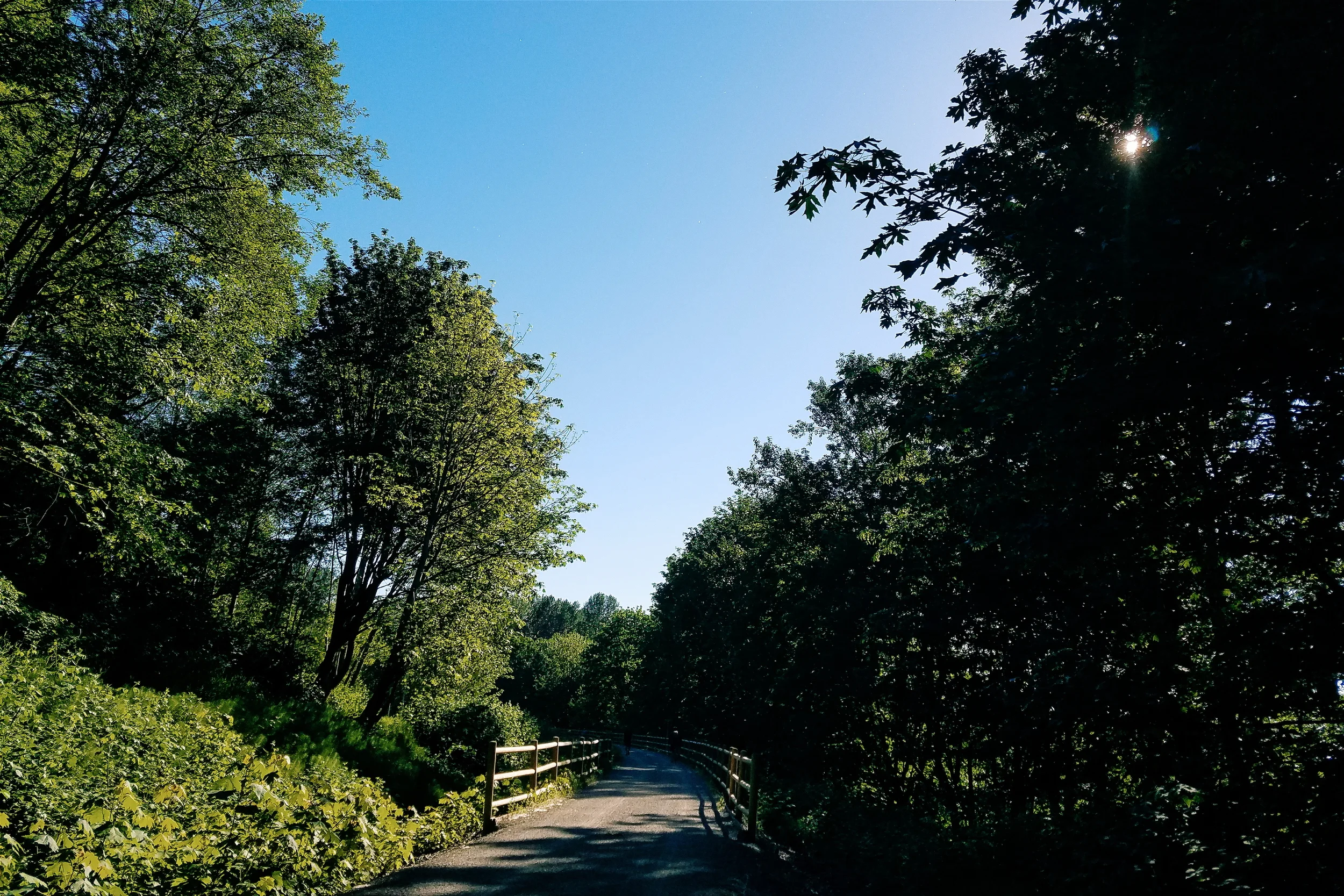Chilly, soggy weather this past Sunday wasn't enough to stop us from having a great hike to Lake 22 for the November meeting of Alpine Trails Book Club. After reading trail reports and the weather forecast, we came prepared with waterproof boots, rain gear, and lots of warm layers, and it's a good thing we did. The few people we passed on the trail who weren't so well prepared looked downright miserable! Understandably so too, since much of the trail had become seasonal stream bed due to the recent heavy rain.
Typical trail conditions for the first mile of the hike
Rainy day hikes are often my favorite and most memorable trips, and this was no exception. Heavy, low clouds filled the forest surrounding the trail, shrouding the distant views in a misty haze. The rain also kept the crowds typical to this popular trail at a minimum. Instead of the constant static of other hikers, the day was dominated by the sound of running water - from the drumming of raindrops on our jackets to the thundering of Twentytwo Creek. As we hiked through the forest of giant western hemlock, mountain hemlock, and red cedar, couldn't help imagining the forests of depression-era Washington That Joe Rantz worked among. The same forests from which George Yeoman Pocock sourced goliath cedars to sculpt his champion racing shells.
“These giants of the forest are something to behold. Some have been growing for a thousand years, and each tree contains its own story of the centuries’ long struggle for survival. ”
Once at the lake, we managed to find a mostly dry patch of earth sheltered by the trees to eat lunch and chat about the book. Almost as soon as we stopped moving, the cold began to catch up with us, so after quickly eating, we packed up and continued our hike around the lake. The brisk, soggy weather gave us a small taste of the suffering of the crew during their training through the even the most unpleasant days of fall and winter.
“Rain pelted their bare heads and shoulders. Their oars slapped against wind-tossed waves, sending up plumes of icy spray that blew back into their faces and stung their eyes. Their hands grew so numb that they could never be sure they had a proper hold on their oars. They could not feel their ears or noses. The icy water of the lake beneath them seemed to suck warmth and energy out of them more quickly than they could produce it. ”
Thinking of their training made me doubly thankful to have such warm, water-resistant clothing. Never have I appreciated modern advances in outdoor apparel so much! As we descended through the mist, the rain began to pelt us harder, the trail beginning to flood in earnest. By the time we reached the trailhead, we were quite thankful for clean dry clothes and shelter from the rain!
















